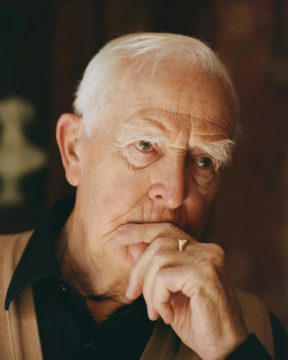Jennifer Wilson in The New Yorker:
 The summer I finished writing my dissertation, the C.I.A. tried to recruit me—as a spy. The call came in the middle of the afternoon, as I was working on a chapter about Tolstoy and midwifery. An older woman with an eerily friendly voice started going over what the training for a job in clandestine affairs would entail. I stifled a laugh. I didn’t know what was harder to believe: that anyone thought I could keep a secret or that a degree in Russian literature would qualify me to parachute out of a plane. Was I interested in learning more? O.K., I said, mostly out of nosiness, or at least that’s what I told myself. They would be in touch, she said.
The summer I finished writing my dissertation, the C.I.A. tried to recruit me—as a spy. The call came in the middle of the afternoon, as I was working on a chapter about Tolstoy and midwifery. An older woman with an eerily friendly voice started going over what the training for a job in clandestine affairs would entail. I stifled a laugh. I didn’t know what was harder to believe: that anyone thought I could keep a secret or that a degree in Russian literature would qualify me to parachute out of a plane. Was I interested in learning more? O.K., I said, mostly out of nosiness, or at least that’s what I told myself. They would be in touch, she said.
I was not in a position to be particularly choosy about who paid my bills. I had a few months left of health insurance, and I—who cannot swim—had just sent a rather pleading application to work as a translator on a salmon-fishing boat in the Russian Far East. Still, I was a little let down by the agency’s approach. This was not how being recruited as a spy had played out in my mind, where a pastiche of scenes from movies and cheap paperbacks had created a fantasy so vivid it almost felt like a memory. I was supposed to be sitting at a bar, nursing my second shot of bourbon, flirting with the bartender and exuding the tousled sex appeal of someone who has not lived up to their potential. A stranger would strike up a conversation, all small talk at first, asking me about the menu, the town, where I got my taste for brown liquor. Then casually, menacingly, the stranger—bearing a striking resemblance to Al Pacino in “The Recruit” (2003)—would call me by my name.
More here.
